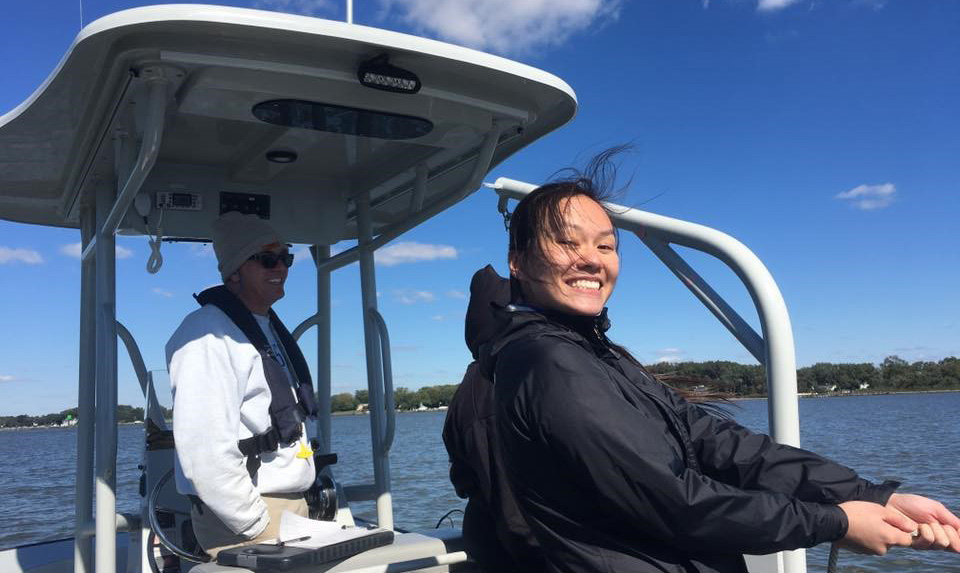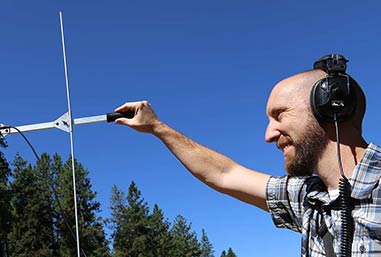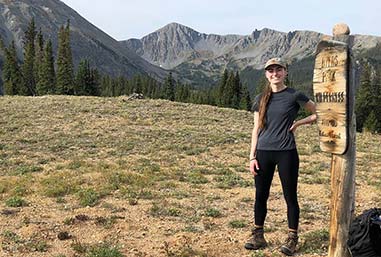A Change of Heart
Hannah Jian Rzeszewicz '18 follows passion for marine conservation
When atomic bombs were dropped on Japan in 1945, massive amounts of radiocarbon were released. As a blossoming marine conservationist studying at the University of Tokyo, Hannah Jian Rzeszewicz '18 plans to investigate the enduring effects this has had on the surrounding coral reef ecosystems.
"The ocean has been absorbing radiocarbon slowly over the years, and corals and other shell-making organisms use the carbon in the water to make their shells," Rzeszewicz says. "We can use radiocarbon dating techniques to determine the amount absorbed and the effects on the ecosystem. These corals are quite literally living pieces of history."
If it weren't for the mentorship and opportunities provided by her Whitworth biology professors, Rzeszewicz may have taken a totally different career path.
During her junior year at Whitworth, Rzeszewicz started to question her long-held plans of becoming a dentist. Having always been environmentally conscious, the biology and psychology double major began to consider a scientific career related to climate change instead.
"The desire to 'do more' for the planet began to take hold, as did my increasing doubts about dental school," Rzeszewicz says. She turned to her trusted mentor, Professor of Biology Aaron Putzke, for guidance.
"Dr. Putzke understood the crossroads I was at and encouraged me to do two things: Apply for Whitworth's Smithsonian Jan Term internship to learn more about the field of climate change and talk to Dr. Grant Casady (professor of biology)," Rzeszewicz says. "Little did I know that both things would completely change my life."


